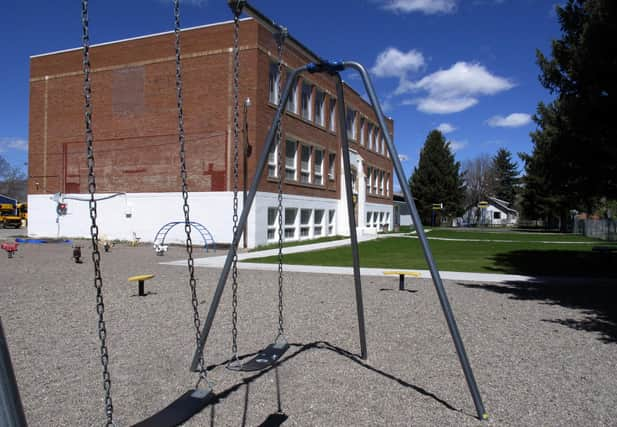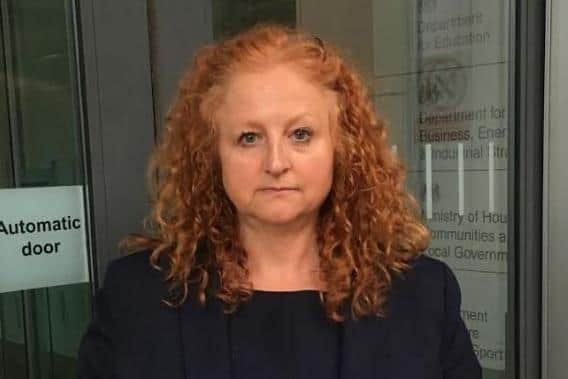'Young people are at risk of being the biggest victims of coronavirus' warns Sheffield expert


Since December 2019, Covid-19 has spread to more than 180 countries and territories and has been on a killing spree which has included children as well as adults.
John Hopkins University in Baltimore, USA, reports that the number of confirmed cases has surpassed two million globally, with 144,000 people dying so far.
Advertisement
Hide AdAdvertisement
Hide AdWhile we are hear the coronavirus is not adversely impacting children, who have been largely spared from the direct health effects of Covid-19 thus far, I have been working with the UN to review global humanitarian efforts and working with governments and partners to find solutions to logistical and operational constraints, to ensure children in need continue to receive humanitarian assistance.


This work has included engaging in number crunching to get behind the data of Covid-19 from an equalities and human rights perspective.
Behind such data there are always the human stories, including the need to conduct projections and estimates of what might the ongoing impact and need arising from the continuation and legacy of this pandemic be.
This data is pointing to the fact a further 66 million children worldwide are on a trajectory to fall into poverty as result of the Covid-19 crisis, adding to the 386m children already living in extreme poverty in 2020.
Advertisement
Hide AdAdvertisement
Hide AdHits to state economies from the necessary measures to stop Covid-19 transmission combined with what is being predicted to be ‘a resultant global recession’, along with the extended long-term effects of delaying the implementation of sustainable development goals, look likely to also cause hundreds of thousands of child deaths during the rest of this year.
Such an escalation would, in one fell swoop, reverse the last three years of progress world nations have made in reducing the world’s infant mortality rate.
Some 1.5 billion children and young people have been affected in 188 countries, through countrywide school closures, which inevitably will result in learning losses for them.
And research indicates learning losses are not being fully addressed through distance learning platforms, due to a third of the world’s children being digitally excluded.
Advertisement
Hide AdAdvertisement
Hide AdEven when schools reopen, only 53 per cent have basic hygiene services – defined as having handwashing facilities with soap and water available – meaning nearly 900 million children worldwide lack such basic hygiene provisions at their schools, increasing their risk of exposure to diseases such as Covid-19.
Data is also indicating a rise in the undernourishment and even malnutrition of children, who in non-pandemic days, in 143 countries, rely on school meals to sustain them.
In many countries, especially those with ongoing humanitarian crises, the Covid-19 outbreak is creating significant additional pressures on the already overburdened social service delivery systems, exacerbating the vulnerabilities of affected populations.
Disabled children and those with complex medical health needs; those in homes where domestic abuse is endemic; displaced children and those who reside in institutions or detention centres, those who are homeless and children who will have suffered the loss of a loved one through Covid-19 are predicted also to be adversely affected going forward by this terrible disease and its stinging aftermath.
Advertisement
Hide AdAdvertisement
Hide AdIn Sheffield, the combined efforts of families, communities, the local media, public authorities, early years settings, schools, agencies, charities, voluntary groups and individuals to alleviate the stresses and strains on children of all ages - and especially our most vulnerable children - should be highly commended.
The formidable test of not leaving any child behind has been at the heart of these endeavours in Sheffield and, as and when the lockdown starts lifting and even abating, those holding power and influence should not lose sight of this important principle, nor the sacrifices and gains made in this regard.
Prioritising children, especially the most vulnerable, when the economic legacy deficits of Covid-19 start biting should be to the fore, because, even though children have not been the face of this pandemic, they are at risk of being one of its biggest victims going forward.
Chrissy Meleady is director of Sheffield-based Equalities and Human Rights UK